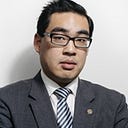Life, Politics, and the Resurrection
In the Gospel accounts of Christ’s trial and crucifixion, it is worth noting that it was Pontius Pilate, an official of the Roman Empire, who continually insisted upon Christ’s innocence while the religious leaders angrily demanded his crucifixion. Likewise, it was Pilate who referred to Christ as a king and the religious leaders who replied with “we have no king but Caesar!” (John 19:15)
Let that sink in. It was the government — the Roman Empire, no less — who tried to free Jesus and it was the faith leaders who demanded his death. It was church, not state, that declared their only king and leader to be Caesar.
This is the telling reality that lead up to Christ’s gruesome death. But, for those of us among the over 70% of Americans who self-identify as Christian, has anything changed for us today?
Do we not largely blame the sins of the world on Washington, DC? For those on the religious right, it centers on issues such as abortion and same-sex marriage. For the progressive Christian, it’s matters of poverty, immigration, and humanitarian crises. For both parties, it’s a refrain of “if only our politcians were more moral….” We then rush toward our self-coronated saviors — the likes of Ted Cruz and Donald Trump for the right and Elizabeth Warren, Bernie Sanders, and Barack Obama for the left — somehow hoping, perhaps even believing, that they alone can and will deliver us.
To borrow Jesus’ words: “Render to Caesar the things that are Caesar’s and to God the things that are God’s.” (Matthew 2:21) We need to stop rendering to Caesar the things that are God’s.
Easter celebrates the resurrection of Christ, not a political insurrection. In fact, in the moments leading up to his death, Jesus reminded those around him of this (Matthew 26:52–56), even telling Pilate that “my kingdom is not of this world.” (John 18:36) Insurrections — political or otherwise — are about power; the Resurrection is about life, its inward character and its subsequent outward expression. Only the latter yields true influence.
The debates we have on political issues are important and have their place. The ills of the world, though, are not caused by a failure of government, but by a failure of humanity — a humanity that has yet to learn how to live. We must learn to live before we can lead. Only then, will our discourse have resolve. Otherwise, we lead and govern with power instead of influence, as we too often do today.
In politics and otherwise, may we be people who pursue life and not power. Christ’s crucifixion reminds us of this; his resurrection empowers us toward it.
SAMUEL CHEN is the founder and principal director of The Liddell Group, an innovative strategy firm specializing in politics, policy, and communications. He is a former aide on both the United States Senate and House of Representatives and completed his graduate studies at the J.M. Dawson Institute for Church-State Studies at Baylor University.
